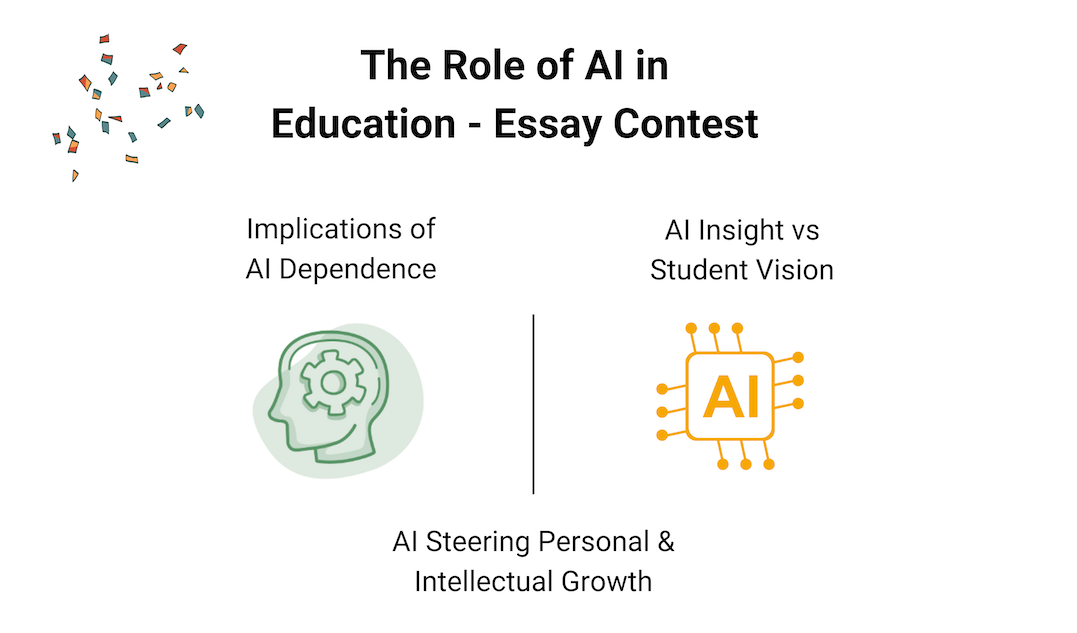Essay contest reveals AI tools fall short compared to JWL learners’ authentic voices and lived experiences
In an essay content launched by the Catholic University of Eichstätt-Ingolstadt, Learning Facilitator students were invited to submit essays exploring the role of AI in education. In the process, it became clear that AI writing tools fall short of reflecting learners’ authentic voices and lived experiences, lacking the necessary depth and insight.

The leveraging of artificial intelligence (AI) technology and its implications has been stirring debate across fields, including the education sector. To involve students in the conversation, the Catholic University of Eichstätt-Ingoldstadt (KU) – JWL partner university accrediting the Learning Facilitator programme – launched an essay contest at the start of 2024.
With the goal of engaging students on the value of their intellectual efforts and individual thoughts in their academic work, the contest invited Learning Facilitator students to submit essays around one of three topics, namely:
1. AI Insight vs. Student Vision
2. The Implications of AI Dependence
3. AI as the Navigator: Steering Personal and Intellectual Growth
Five winning entries were selected out of 17 submissions by a committee composed of KU and JWL officers, for their uniqueness and ingenuity.
Nkembe’s essay points to the limitations of AI by reflecting how during his travel from Nigeria to Niger, every aspect of life, even spirituality, was affected by what he calls the “fast syndrome.”
“I do remember […] when I was traveling from Lagos (Nigeria) to Maradi (Niger), almost 2 km from both sides in Lagos was filled with denominational churches, and I saw a most spectacular one: ‘Quick Quick Ministry’, that means there is no exception, even spirituality is in need of a substitute nowadays. Artificial intelligence could maybe assist students in performing well in their studies, or to assist students with special needs, but the truth is that, it is still limited.” - Nkembe
In her essay, Olivia highlights how AI could lead to an emotionless world, endangering human dignity. “If a human brain becomes [an] AI influenced object, there would be no more feelings and emotions,” she says, warning that, “the lack of feelings and emotions means the origin of cruelty.”
Wilson, on the other hand, approached the question of AI in education through an egalitarian lens, stating that “it acts as an equaliser.” He finds that “AI is not taking over teachers and the facilitators, but it is a powerful tool that, when used effectively, can boost the learning path in a systematic manner.”
This egalitarian perspective is further developed by Mohammed*, who stresses the need for education for women and girls. “Women could plant the seeds of inclusivity, tolerance, and mutual understanding by being educated. […] In marginalised communities, education can play a vital role in bridging the gap.” In comparison, the AI-generated essay submitted on the role of education in marginalised communities did not emphasise the gender perspective.
In the same category, Aisha* pleads for education at the margins and not to leave anyone behind, as is currently the case in her community: “Education is an important part for improving the marginalized communities but no one pay attention. It is a harm for those who lived in this communities. […] there is no one to think of them.”
Though some essays were flagged as being AI-generated (which was not allowed in the contest), when compared with non-AI-generated submissions, it revealed that the use of such writing tools fall short of reflecting learners’ authentic voices and lived experiences, lacking the necessary depth and insight.
In concluding remarks shared with JWL, the contest committee stated that:
“This essay contest was not only a reaffirmation of our commitment to academic integrity but also a celebration of the human spirit, the power of personal storytelling, and the transformative impact of education. We commend all participants for their willingness to share their stories and congratulate the winners for their outstanding contributions.”
Not only was the contest an opportunity for students to reflect on the role of AI technology in education for marginalised communities, but also a chance for learners at the margins to be reminded of the power of their voice – more enriching, thought-provoking and unique, than what technology can currently generate.
The award included a monetary prize, in recognition of contestants’ outstanding academic efforts. In one instance, it was reported that a recipient chose to use the prize money to purchase pens for his students (which they lacked) – a not uncommon display of thoughtfulness by a JWL student – but always as heart-warming.
*For safeguarding reasons, names have been changed and locations are not reflected.